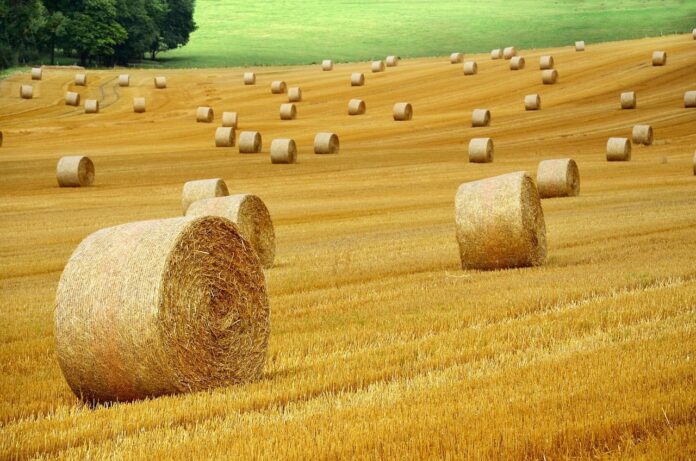The agricultural landscape is undergoing a profound transformation, driven by the relentless force of global warming. As the planet’s average temperatures rise, the effects on farming are both varied and profound. Climate change has led to shifts in weather patterns, the frequency and intensity of extreme weather events, and alterations in water availability, all of which have significant implications for agricultural productivity. The Intergovernmental Panel on Climate Change (IPCC) has highlighted that these changes are likely to continue, with potentially severe consequences for food security globally. Understanding the role of global warming in agriculture is the first step towards developing strategies to mitigate its impact and ensure the resilience of our food systems.
The relationship between agriculture and global warming is complex and bidirectional. On one hand, farming activities contribute to greenhouse gas emissions through practices such as deforestation, the use of synthetic fertilizers, and livestock production. On the other hand, the resulting climate change affects agriculture by disrupting growing seasons, increasing the prevalence of pests and diseases, and reducing crop yields. As the Earth’s climate zones shift, so too must the agricultural practices that have been fine-tuned to specific regional conditions over centuries. This necessitates a reevaluation of traditional farming methods and a concerted effort to adapt to the new environmental realities.
Adapting to the Heat: How Farmers are Modifying Practices in Response to Climate Change
In response to the escalating challenges posed by global warming, farmers around the world are modifying their practices to adapt to the new conditions. One of the most immediate changes has been the alteration of planting and harvesting schedules. Farmers are increasingly relying on climate forecasts to make critical decisions about when to plant and harvest crops to avoid the worst of the weather extremes. Additionally, there is a growing trend towards the cultivation of heat-resistant crop varieties, which are better suited to withstand higher temperatures and drought conditions.
Water management has also become a critical area of focus. With the unpredictability of rainfall, farmers are investing in efficient irrigation systems to conserve water and ensure that crops receive adequate moisture. Techniques such as drip irrigation and the use of mulches to reduce evaporation are becoming more widespread. Furthermore, soil health is being prioritized, as healthy soils can better retain water and support crops during periods of stress. Practices such as cover cropping, reduced tillage, and the incorporation of organic matter are being adopted to enhance soil resilience.
Innovative Farming Techniques: Embracing Sustainability to Combat Environmental Challenges
The urgency of global warming has spurred innovation in farming techniques, with a strong emphasis on sustainability. One such innovation is precision agriculture, which utilizes technology such as GPS and satellite imagery to optimize field-level management regarding crop farming. This approach allows for precise application of inputs like water, fertilizers, and pesticides, reducing waste and minimizing environmental impact. Another sustainable practice gaining traction is agroforestry, which integrates trees into agricultural landscapes. This not only provides shade and shelter for crops and livestock but also sequesters carbon, contributing to the mitigation of global warming.
Organic farming is another method that is being increasingly recognized for its potential to mitigate climate change while providing environmental benefits. By eschewing synthetic fertilizers and pesticides, organic farming reduces greenhouse gas emissions and promotes biodiversity. Moreover, the adoption of renewable energy sources on farms, such as solar or wind power, is helping to reduce the carbon footprint of agricultural operations. These innovative practices are not only environmentally sound but can also improve farm profitability and resilience in the face of climate change.
The Future of Agriculture: Policy Changes and Technological Advances in the Wake of Global Warming
Looking to the future, the role of policy changes in shaping the agricultural response to global warming cannot be overstated. Governments around the world are beginning to recognize the need for policies that support sustainable farming practices and incentivize carbon reduction. Subsidies for renewable energy installations, carbon credits for sequestration practices, and investment in agricultural research are examples of policy measures that can drive positive change. The European Union’s Common Agricultural Policy, for instance, has been reformed to include more environmental and climate-related objectives, signaling a shift towards greener farming practices.
Technological advances also hold promise for the future of agriculture in a warming world. Innovations such as gene editing offer the potential to develop crop varieties that are more resilient to climate stressors. Robotics and automation can increase efficiency and reduce the reliance on fossil fuels. Meanwhile, advancements in data analytics and artificial intelligence are providing farmers with tools to make more informed decisions and optimize resource use. As these technologies become more accessible, they will play a crucial role in enabling farmers to produce food sustainably in an increasingly unpredictable climate.
Global warming presents a formidable challenge to modern farming practices, but it also serves as a catalyst for innovation and change. By understanding the role of global warming in agriculture, adapting current practices, embracing sustainable techniques, and advocating for supportive policies and technological advancements, the agricultural sector can not only survive but thrive in the face of climate change. The cultivation of change is not just a necessity; it is an opportunity to reimagine and reshape the future of food production for generations to come.
